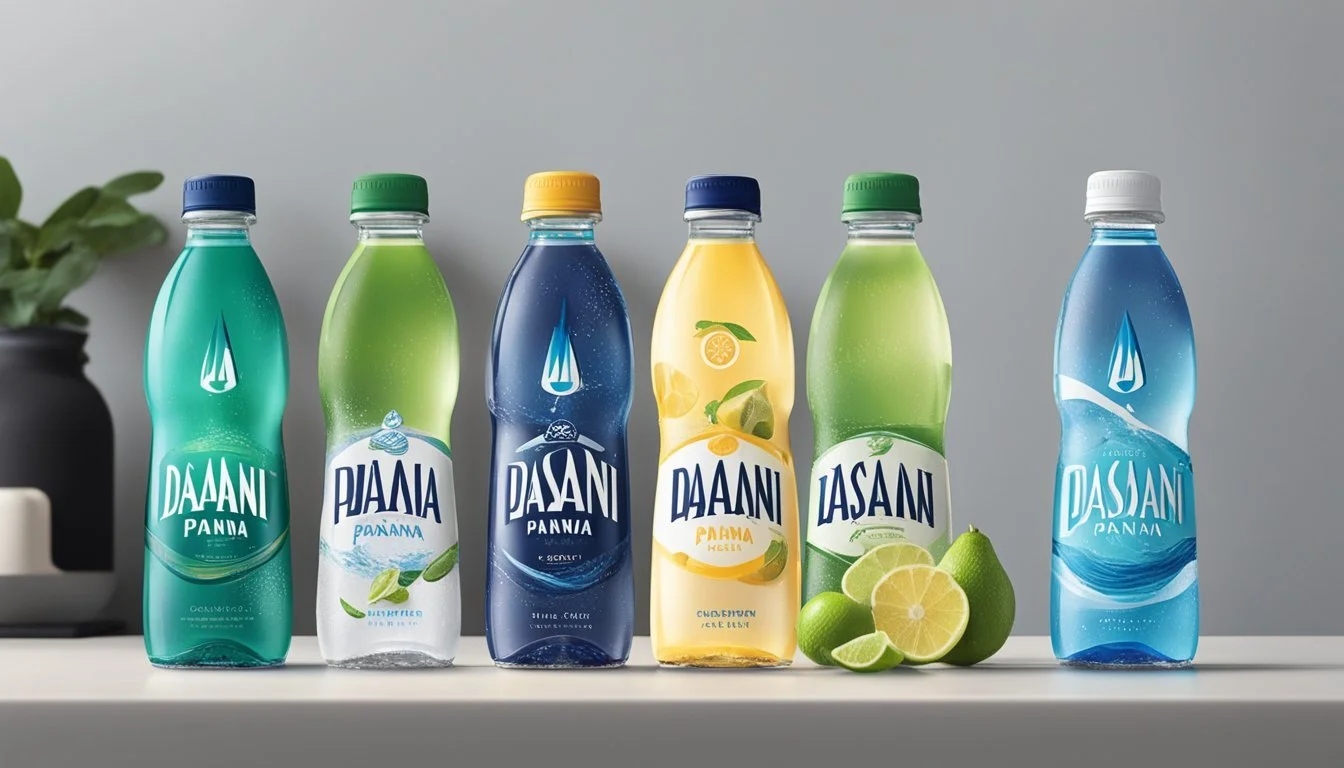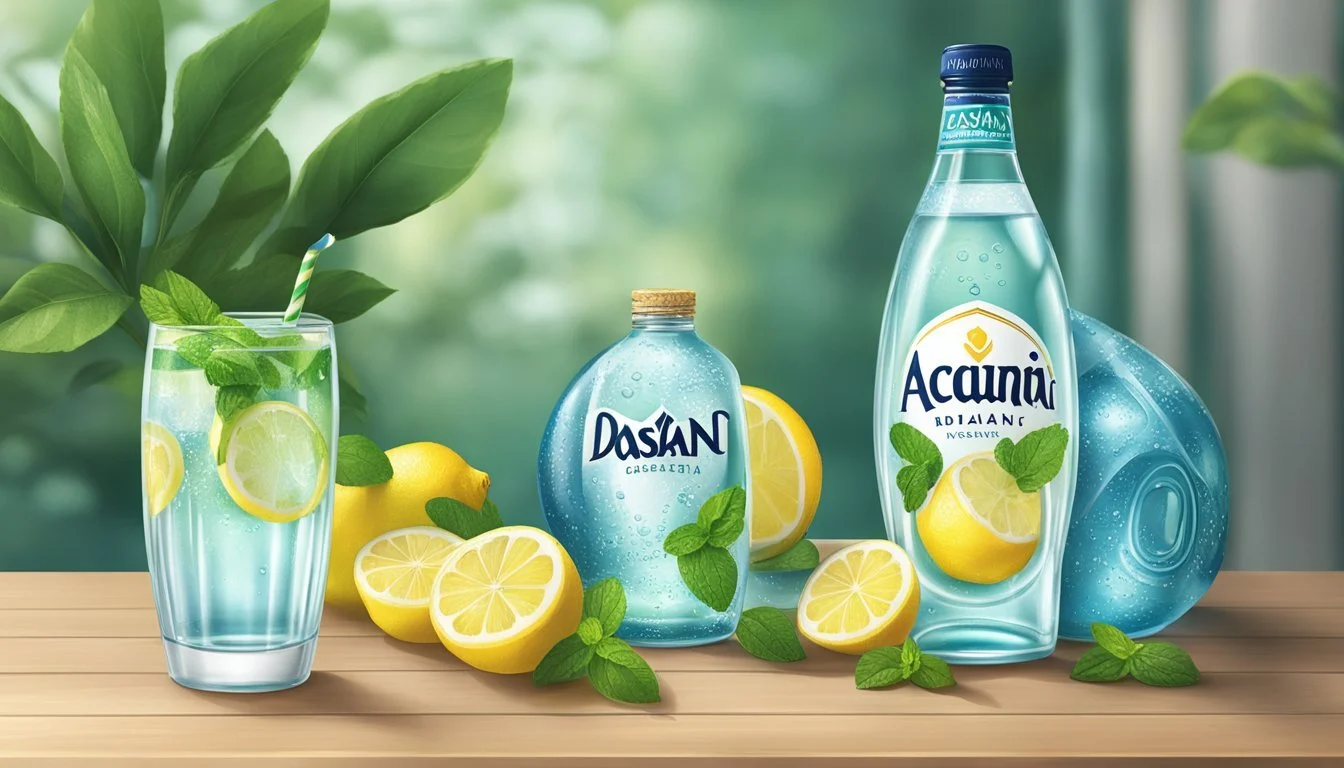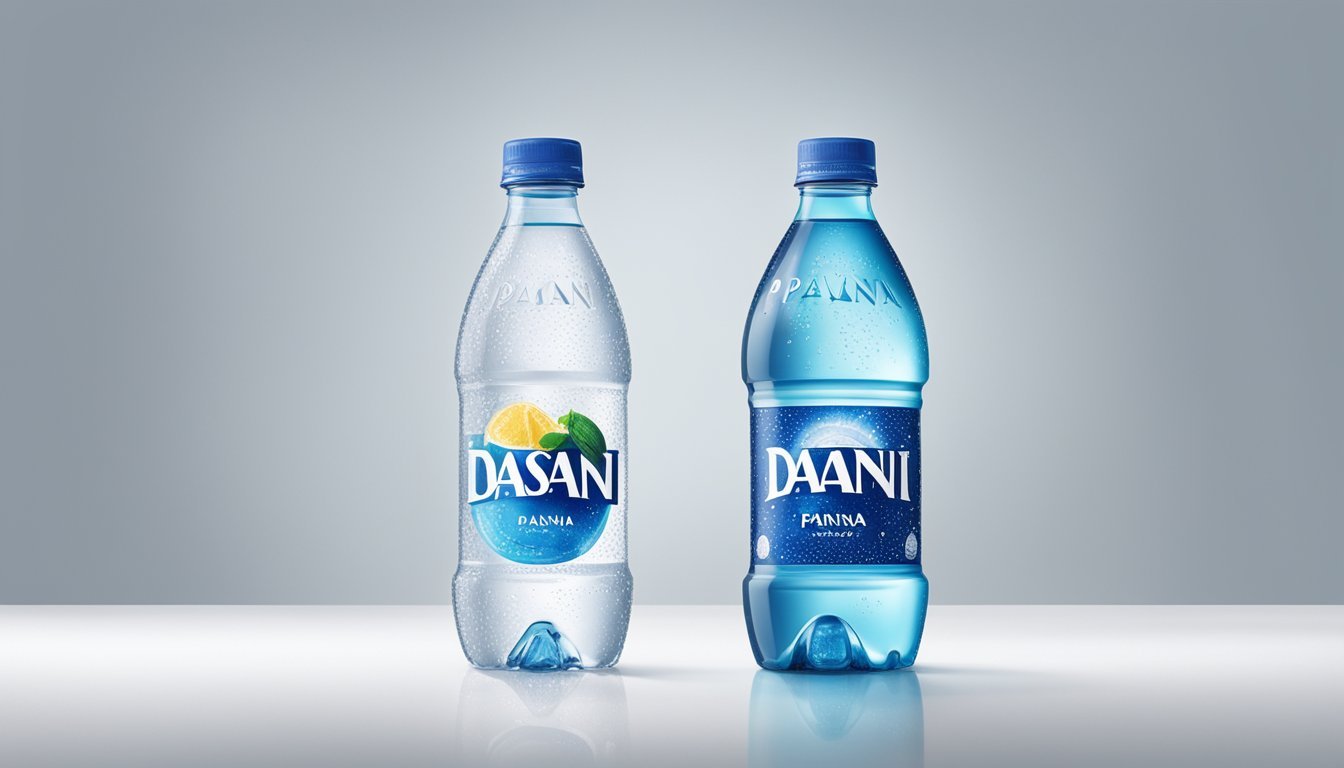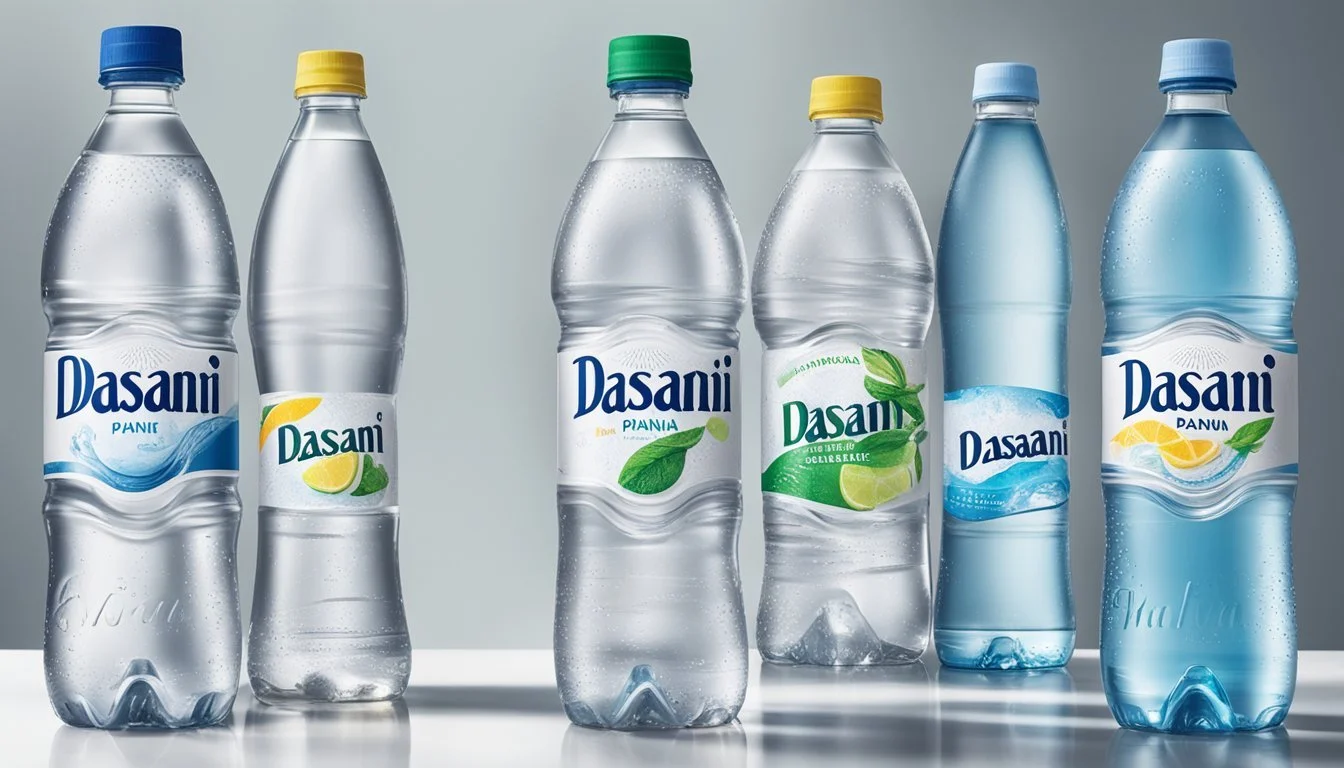Acqua Panna vs. Dasani
Unveiling the Superior Bottled Water Choice
Choosing the right bottled water can be a surprisingly nuanced decision for consumers, with options ranging from the ubiquitous Dasani to the Italian-sourced Acqua Panna. Both brands offer a distinct taste profile and source quality that appeal to different preferences and values. Acqua Panna prides itself on its smooth taste and natural alkalinity, with water sourced from the Tuscan hills of Italy – an area known for its rich gastronomic heritage. Its history dates back to the Renaissance, giving it a legacy that resonates with those who appreciate a touch of tradition in their choice of water.
In contrast, Dasani, a product of The Coca-Cola Company, is treated with a proprietary blend of minerals to achieve its taste. Despite its wide availability and affordability, Dasani has faced criticism from some consumers and beverage reviewers who question the taste and quality of the water, citing preferences for natural sources versus purified municipal sources. Rather than focusing on heritage or sourcing mystique, Dasani emphasizes consistency and convenience, striving to deliver the same taste experience across various markets.
When comparing Acqua Panna and Dasani, it's not just a matter of which is better overall, but rather which one better suits individual preferences for taste, sourcing practices, and brand values. Each brand caters to different aspects of what consumers might be looking for in bottled water, be it an artisanal source or a reliably uniform product.
Background of Acqua Panna and Dasani
When comparing bottled water like Acqua Panna and Dasani, their history, ownership, and the philosophies they embody are crucial differentiators that shape consumer perception and choice.
Origin and Ownership
Acqua Panna has its roots in the Renaissance Italy, specifically in Tuscany, where the natural spring was celebrated for its refreshing waters as early as the 1500s. This still water brand is sourced from the Apennine Mountains and prides itself on a heritage that aligns with Italian culinary tradition. Today, Acqua Panna is bottled by Sanpellegrino S.p.A., which is owned by Nestlé.
In contrast, Dasani is a product of Coca-Cola, introduced to the market in 1999. Unlike Acqua Panna's single-source origin, Dasani is known for being filtered municipal water that incorporates a blend of mineral salts. Dasani’s production involves purification through reverse osmosis, ensuring consistent taste across various markets.
Brand Philosophy and Image
Acqua Panna's philosophy revolves around the image of Italian elegance and purity. It presents itself as the embodiment of Tuscan lifestyle, often associated with high-quality dining experiences. The branding exudes a sense of sophistication and targets consumers who appreciate the finer things in life.
Dasani, on the other hand, promotes itself based on convenience and modern hydration. As a product of Coca-Cola, a global beverage giant, Dasani aims to be readily available and accessible, catering to a wide audience seeking hydration on the go. The brand emphasizes its filtration process and added minerals as a cornerstone of their product's purity and taste.
Water Source and Composition
This section presents a factual comparison of Acqua Panna and Dasani, focusing on their origins, mineral content, and the quality indicated by pH levels.
Geographical Sources
Acqua Panna originates from a natural spring located in the Tuscan region of Italy. This spring water flows over limestone and sandstone in the Apennine Mountains, acquiring minerals naturally before being bottled. Dasani, on the other hand, is derived from local municipal water supplies and undergoes filtration. This process often involves added minerals for taste enhancement.
Mineral Content Analysis
The mineral content of bottled water significantly influences its taste and nutritional value. Acqua Panna is categorized as a mineral water, known for its rich blend of minerals acquired from the mountain valley, including calcium and magnesium. Tables showing the mineral composition typically list Acqua Panna as having a balanced content conducive to a smooth taste.
Mineral Acqua Panna (mg/L) Calcium 34 Magnesium 6.9 Sodium 6.5 Bicarbonate 104
In contrast, the mineral content in Dasani is controlled and added during the production process. The specific content of Dasani can vary as it's tailored to achieve consistency in taste, regardless of the original water source.
pH Levels and Water Quality
The pH level represents the acidity or alkalinity of water. Acqua Panna maintains a pH level that approximates neutral at around 8.0, which reflects the natural environment through which it travels. Natural filtration through volcanic rock can contribute to a stable and clean taste profile.
Dasani displays an average pH closer to 7, which denotes neutral water. However, this neutrality is achieved through artificial processing. The pH levels and the regulatory standards met during this process ensure Dasani's safety and consistency as a product.
The quality of water from both brands is subject to rigorous testing, and both meet the standards set by their respective governing bodies. However, the natural spring source of Acqua Panna offers a unique composition, making it distinct in its category.
Production and Bottling Processes
In the production and bottling of bottled water, Acqua Panna and Dasani follow distinct processes that define their products. They both prioritize the delivery of safe, refreshing hydration to their consumers.
Filtration and Purification
Acqua Panna touts a natural filtration process. Its water flows through the hills of Tuscany, Italy, gaining minerals and undergoing a natural purification journey before bottling. This gives it a notable taste profile without the need for additional filtration.
Dasani, on the other hand, uses a multi-step filtration process including reverse osmosis and adds a proprietary blend of minerals for a consistent taste. During its purification process, ultraviolet light and ozone are employed to ensure the highest purity, aligning with EPA standards for public water.
Bottling and Packaging
Acqua Panna emphasizes elegance and heritage in its packaging, mainly offering its still water in glass bottles to preserve taste and quality. Glass bottling also aligns with higher sustainability standards and can contribute to a brand's carbon neutral goals.
Dasani’s water is predominantly available in plastic bottles. The brand has made strides in environmental responsibility by reducing its plastic usage and incorporating recycled materials. Recently, they have also introduced aluminum cans and bottles for select products, including their carbonated water.
Environmental Sustainability
Acqua Panna has been involved in initiatives aiming to become carbon neutral. It stresses the use of renewable resources and lessening the environmental impact of its production processes.
Dasani has also been active in sustainability efforts. The brand has implemented the use of PlantBottle™ technology, where up to 30% of the material comes from plants. Furthermore, they have invested in water conservation strategies and improvements to their bottling practices to minimize their ecological footprint.
Health and Hydration
When choosing between Acqua Panna and Dasani, one should consider the hydration effectiveness and the health implications of the minerals and electrolytes each brand offers.
Hydration Effectiveness
Acqua Panna and Dasani are both known to be effective for hydration, as all bottled water provides the necessary fluid to keep the body hydrated. Acqua Panna is a natural spring water that comes from the Tuscany region of Italy and is known for its purity and natural taste. Dasani, on the other hand, is a purified water that is enhanced with a blend of minerals for a crisp, clean taste.
Acqua Panna: It naturally contains electrolytes and minerals, such as calcium and magnesium, which can supplement daily nutritional intake while hydrating.
Dasani: This brand typically adds a combination of minerals, including magnesium sulfate, potassium chloride, and salt, after its purification process to enhance the taste and hydrate efficiently.
Health Implications of Minerals and Electrolytes
The presence of minerals and electrolytes in bottled water can have various health implications.
Minerals:
Acqua Panna is known for its rich mineral content, including calcium and magnesium, which are crucial for bone health and metabolic functions.
Dasani's added minerals are intended to improve taste rather than provide significant health benefits.
Electrolytes:
The electrolytes in Acqua Panna, like other natural spring waters, assist in rehydration and help maintain the body's pH balance.
Dasani, with added electrolytes, aims to mimic the rehydration capability of natural mineral waters, although it does not market itself as alkaline water.
It should be noted that while both bottled waters may contain varying levels of minerals and electrolytes, normal consumption of these products typically does not lead to significant health benefits beyond basic hydration; the key is to maintain a balanced diet and stay hydrated for overall health.
Flavor and Palate Experience
When comparing Acqua Panna and Dasani, the distinctions in flavor profiles and expert opinions from water sommeliers become apparent, providing insights into their overall taste experience.
Taste Profile Comparisons
Acqua Panna, hailing from Tuscany, Italy, is touted for its natural filtration through limestone hills, which imparts a smooth and silken quality to the taste. With a balanced pH and mineral content, it tends to deliver a flat profile that is often preferred in a fine dining context. Dasani, in contrast, is known for its consistent taste across different regions, achieved by adding minerals. However, some may detect a slight saltiness in Dasani, due to its added potassium chloride.
A blind taste test may reveal one's personal preference without the bias of brand recognition. It's common for individuals to identify a preference for either the softness of Acqua Panna or the familiar and consistent mineral taste of Dasani.
Water Sommelier Insights
Water sommeliers often provide expert commentaries on the flavor nuances of bottled waters. They evaluate factors such as terroir—the environmental conditions where the water is sourced—and the composition of minerals which contribute to the unique character of each brand.
For Acqua Panna, sommeliers might note its natural purity and subtle flavors as standout characteristics, making it a versatile choice for pairing with a wide range of dishes. Dasani's crafted taste profile, on the other hand, is characterized by its manufacturer as being designed to taste the same, which might appeal to those valuing consistency in their water selection.
In essence, personal taste preference weighs heavily in the choice between Acqua Panna and Dasani, as both offer distinct flavor experiences cultivated through their sourcing and production processes.
Consumer Perceptions and Brand Loyalty
The battle between Acqua Panna and Dasani extends beyond the shelf as consumer perceptions and brand loyalty play a critical role in their popularity. Patterns in market research and social media sentiment offer insight into how these brands fare in the eyes of the public.
Market Research and Preferences
Market research consistently reveals that consumers exhibit preferences for bottled water brands that align with their personal values and taste perceptions. Acqua Panna, an Italian spring water bottled by San Pellegrino, often appeals to those who favor its taste and the brand's image of sophistication. In contrast, Dasani, a product of The Coca-Cola Company, faces mixed receptions. It has been critiqued by some consumers over taste, but its wide availability and frequent discounts can influence purchasing decisions. Brands like these become case studies in understanding the factors that drive customer loyalty — accessibility for Dasani and perceived quality for Acqua Panna.
Social Media Presence and Public Opinion
Social media heavily influences public opinion about bottled water brands. Dasani, for instance, has endured criticism on platforms like Twitter where it occasional becomes the subject of viral jokes about its taste. Additionally, influencers like Shane Dawson have impacted perceptions through their content, such as conspiracy theory videos that reach millions. Publications like Business Insider also sway public opinion by featuring rankings and taste tests that can elevate or diminish a brand's reputation. Acqua Panna maintains a less controversial stance on social media, but its lesser presence compared to Dasani's ubiquitousness can lead to varied levels of engagement and loyalty among consumers.
Comparative Analysis
This section provides an in-depth look at how Acqua Panna and Dasani bottled water brands measure up in terms of pricing, perceived value, and their respective positions in the competitive bottled water market. These factors influence consumer choice and brand preference.
Price Point and Value
Acqua Panna is often perceived as a premium brand, with a price point to match. Its water comes from the springs of Tuscany and is aimed at a market segment that appreciates natural spring water with a unique terroir. A comparison to similar brands like Voss and Fiji shows that Acqua Panna is priced competitively within the premium market. In contrast, Dasani, a Coca-Cola product, is typically more affordably priced and readily available. It falls into the same category as Aquafina and Pure Life, which are also known for their moderate pricing. Consumers might find Dasani to offer better value for everyday consumption, while Acqua Panna is associated with a premium dining experience.
Brand Typical Price Range Market Position Acqua Panna Higher Premium Dasani Lower Mass-market Voss Higher Premium Fiji Higher Premium Aquafina Lower Mass-market Pure Life Lower Mass-market
Competitive Standing in the Market
Acqua Panna enjoys a reputation as a high-quality luxury water brand and competes with other high-end brands like Evian and Smartwater. Its standing is bolstered by a long history and its association with gourmet dining. On the other hand, Dasani's standing in the market has occasionally been challenged due to controversies regarding its source and treatment process. Its main competitors are value-oriented brands such as Aquafina and Nestlé's Pure Life.
In specialty categories, brands like Essentia and Core Hydration have carved out a niche with their alkaline and electrolyte-enhanced waters, offering features that neither Acqua Panna nor Dasani emphasizes. Essenntia, for instance, markets itself based on its higher pH, distinguishing it within a crowded field and appealing to health-conscious consumers.
The knowledge of these distinctions is crucial for consumers making informed decisions and for understanding each brand's value proposition in the highly competitive bottled water industry.
Environmental Impact and Sustainability
When comparing Acqua Panna and Dasani, understanding their environmental impact and initiatives for sustainability becomes crucial. Both brands operate under different parameters, with Acqua Panna focusing on natural source water and Dasani largely purifying municipal sources. The materials they use for bottling and their approaches to corporate environmental initiatives vary considerably.
Bottling Environmental Footprint
Acqua Panna bottles its water in glass and plastic bottles, with an emphasis on premium natural spring water from Tuscany. Glass, although heavier to transport, can be effectively recycled, reducing its environmental footprint. On the other hand, Dasani, predominantly found in plastic bottles, must address the higher environmental impact due to the energy consumption and waste management challenges associated with plastic.
Acqua Panna:
Uses glass bottles which are heavier but highly recyclable
Offers plastic bottle options
Dasani:
Primarily uses plastic bottles
Faced with challenges in energy consumption and plastic waste
Corporate Social Responsibility Initiatives
Acqua Panna prides itself on its sustainability initiatives, stating that its estate is central to its efforts in reducing environmental impact. The brand demonstrates a commitment to environmental sustainability through the preservation of the natural area in which its source is located, aiming for a harmonious balance with nature.
Dasani has had initiatives looking towards carbon neutral goals by introducing PlantBottle packaging, partially made from plants, and investing in recycling programs. They also are a part of the global beverage industry's push to reduce the carbon footprint of bottled water products.
Acqua Panna:
Actively preserves its natural source's environment
Aims to balance bottling operations with natural preservation
Dasani:
Pursues carbon neutral initiatives
Invests in innovative packaging and recycling programs
Legal and Industry Standards
In the domain of bottled water, including brands such as Acqua Panna and Dasani, manufacturers must navigate a complex landscape of regulatory compliance and rigorous quality assurance protocols. These measures are designed to ensure consumer safety and product reliability.
Regulatory Compliance
The Food and Drug Administration (FDA) oversees bottled water quality standards within the United States. Bottled water must comply with FDA regulations that are as stringent as the Environmental Protection Agency's (EPA) standards for tap water. Key aspects of these regulations include:
Standards of Identity: Defining different types of bottled water (e.g., spring water, mineral water).
Standards of Quality: Establishing acceptable levels of contaminants.
Current Good Manufacturing Practices (CGMPs): Ensuring sanitary bottling processes and facilities.
Acqua Panna and Dasani are required to meet these standards, which incorporate specific limits for contaminants such as chemicals, pathogens, and physical impurities. For instance, bromate levels must not exceed the FDA's maximum contaminant level (MCL).
Quality Assurance and Certification
Both Acqua Panna and Dasani emphasize their adherence to quality assurance protocols to maintain trust in their brands. Key elements of Quality Assurance include:
Independent Certifications: Acquiring certifications like NSF or IBWA signifies that a bottled water brand has met additional voluntary standards set by these organizations.
Regular Testing: Bottled water brands conduct regular testing for a range of potential contaminants to ensure safety and quality.
Quality assurance procedures encompass both routine inspections and rigorous testing to certify that every bottle of Acqua Panna and Dasani meets or surpasses industry and regulatory standards. It is this dedication to consistent quality that establishes their positions as trustworthy brands within the bottled water market.
Conclusion
In the realm of bottled water, both Acqua Panna and Dasani offer distinct choices for consumers prioritizing quality and convenience.
Final Thoughts
Acqua Panna is renowned for its natural composition and taste, with its source from the Tuscan hills contributing to its reputation. It shines as a still water preference, often chosen by consumers who prioritize the purity and flavor of their water. In contrast, Dasani, a product of The Coca-Cola Company, has faced criticism for taste and quality despite its widespread availability. While Dasani offers both still and sparkling water options, it has been noted for containing added minerals and a distinct taste that some consumers find less appealing. Acqua Panna's position in the upper echelon of bottled waters is marked by its commitment to clean drinking water, whereas Dasani's convenience and accessibility make it a ubiquitous but less celebrated option.
Future Trends and Predictions
The preference for clean drinking water shows a market trend towards waters like Acqua Panna. However, evolving consumer demands may push companies to innovate and improve their products. Dasani might integrate new filtration technologies or source water enhancements, while Acqua Panna could expand its offerings or work on the convenience factor, perhaps by improving its distribution channels. Sparkling water continues to rise in popularity, and this could lead Dasani to focus on its carbonated options to compete in an expanding market. The industry is watching for environmental sustainability practices to become a decisive factor in consumer choices, potentially influencing the future branding and packaging strategies of both brands.







